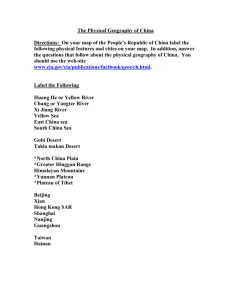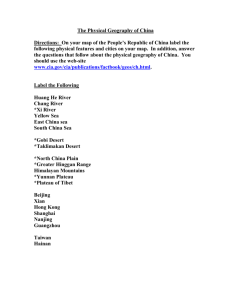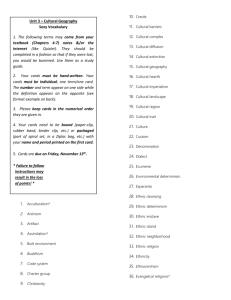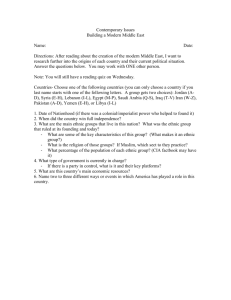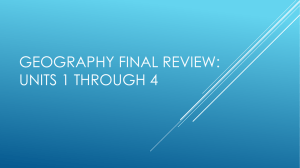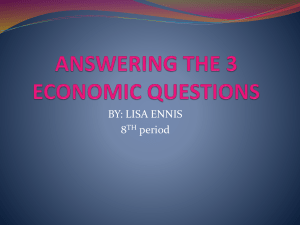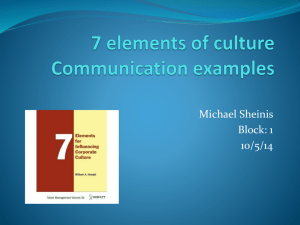File africa vocabulary 3rd 9 weeks
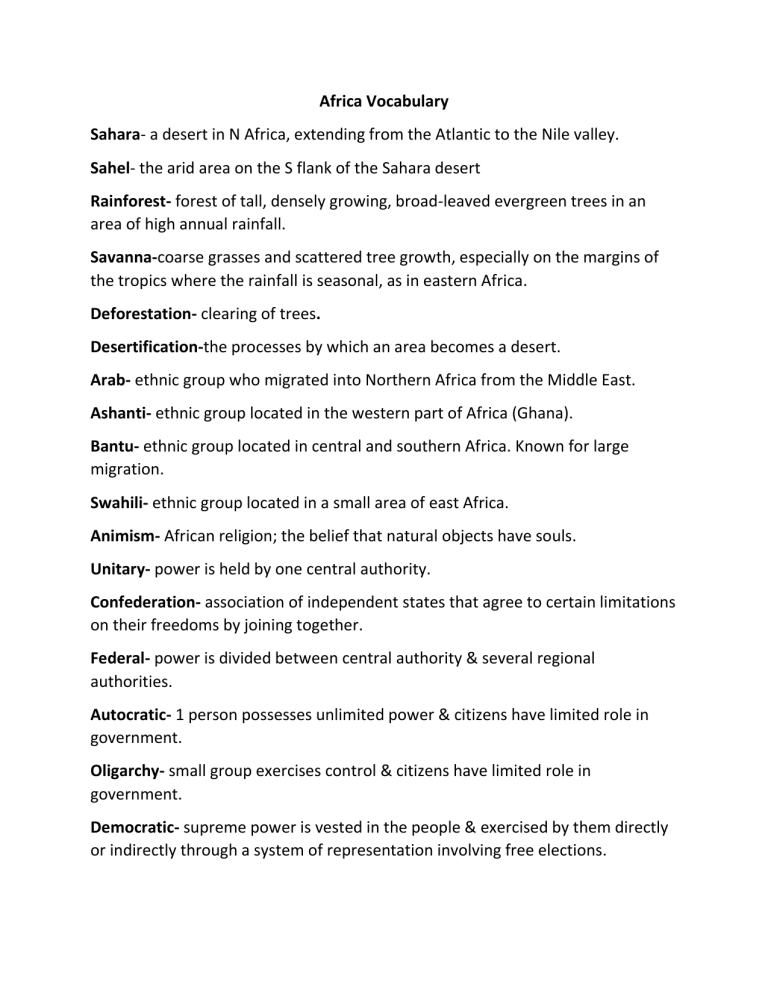
Africa Vocabulary
Sahara- a desert in N Africa, extending from the Atlantic to the Nile valley.
Sahel- the arid area on the S flank of the Sahara desert
Rainforest- forest of tall, densely growing, broad-leaved evergreen trees in an area of high annual rainfall.
Savanna-coarse grasses and scattered tree growth, especially on the margins of the tropics where the rainfall is seasonal, as in eastern Africa.
Deforestation- clearing of trees.
Desertification-the processes by which an area becomes a desert.
Arab- ethnic group who migrated into Northern Africa from the Middle East.
Ashanti- ethnic group located in the western part of Africa (Ghana).
Bantu- ethnic group located in central and southern Africa. Known for large migration.
Swahili- ethnic group located in a small area of east Africa.
Animism- African religion; the belief that natural objects have souls.
Unitary- power is held by one central authority.
Confederation- association of independent states that agree to certain limitations on their freedoms by joining together.
Federal- power is divided between central authority & several regional authorities.
Autocratic- 1 person possesses unlimited power & citizens have limited role in government.
Oligarchy- small group exercises control & citizens have limited role in government.
Democratic- supreme power is vested in the people & exercised by them directly or indirectly through a system of representation involving free elections.
Parliamentary Dem. citizens elect members of Parliament, and then the members select the leader.
Presidential Dem. system of government in which the leader is constitutionally independent of the legislature; citizens directly elect leader.
Command Economy- All economic decisions are made by the Government.
Free Market Economy-Economic decisions are made based on the changes in prices that occur as buyers & sellers interact in the market place.
Traditional Economy- economic decisions are based on customs, traditions, & beliefs of the past.
Human Capital- is the knowledge and skills that make it possible for workers to earn a living producing goods and services.
Capital Goods- All of the factories, machines, technologies, buildings, and property needed by businesses to operate.
Natural Resources-“Gifts of Nature”
Specialization-producing those goods and services they can provide best and most efficiently.
Entrepreneurship- People who provide the money to start and operate a business.
Embargo- prohibiting trade with another country (usually for political reasons).
Tariff- tax placed on imported goods.
Quota- limits the amount of imported goods into a country.
Gross Domestic Product-is the total value of all the goods and services produced in that country in one year.
GDP per capita- is the total value of all the goods and services produced in that country in one year divided by the population.
Nationalism-devotion and loyalty to one's own country.
Famine- extreme and general scarcity of food.
AIDS-a disease of the immune system characterized by increased susceptibility to opportunistic infections: caused by a retrovirus and transmitted chiefly through blood or blood products that enter the body's bloodstream, especially by sexual contact or contaminated hypodermic needles.
Apartheid-a rigid former policy of segregating and economically and politically oppressing the nonwhite population.
Nelson Mandela- South African black antiapartheid activist: president of South
Africa.
F.W. de Klerk-South African political leader: president 1989–94; Nobel Peace
Prize 1993.
